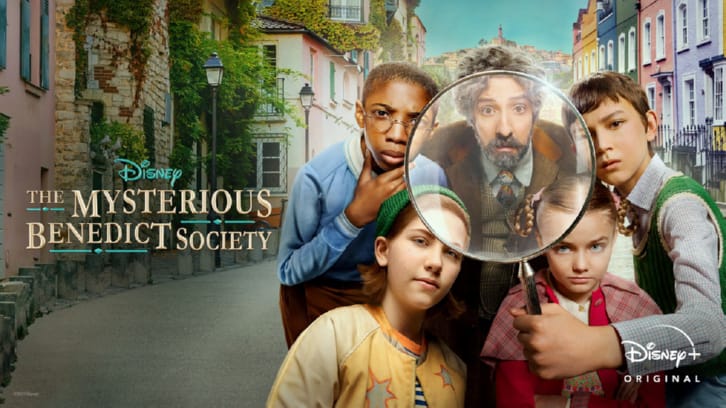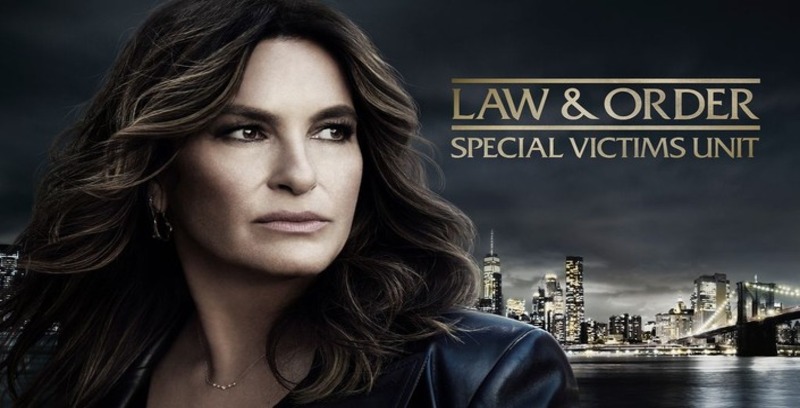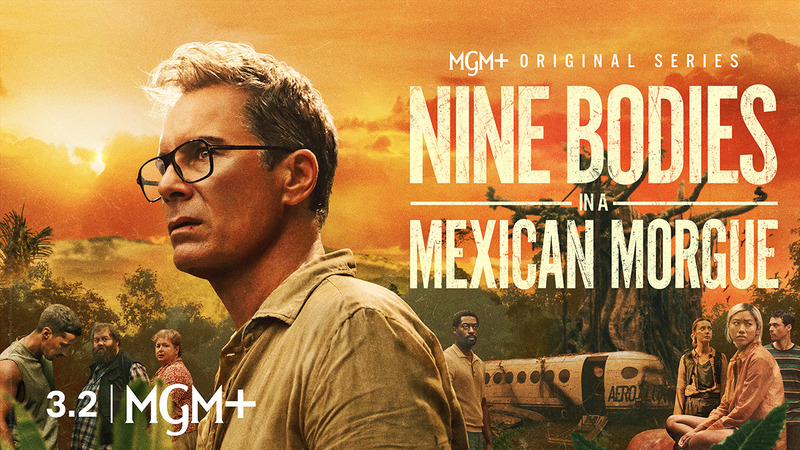Brace yourself, 12-year-old Karenna: all your dreams might be coming true.
The Mysterious Benedict Society, the introspective, hyper-intellectual, YA book series by Trenton Lee Stewart, has finally been realized on screen. Eccentric, emotional and riddled with riddles, this series proved a formative haven for me in my middle school years, even more so than mid-aughts staples like Harry Potter, Percy Jackson, and A Series of Unfortunate Events. I quite literally prayed for the day the series would receive an on-screen adaptation and when everyone else could experience the same nerdy joy I did in devouring the story of Reynie, Sticky, Kate and Constance.
Possibly as expected, the first two episodes of The Mysterious Benedict Society on Disney+ unearthed a deep well of feelings inside me, admittedly tinting my review of it in a bit of nostalgia-bias, both to the show’s advantage and disadvantage. MBS has a specific and crucial legacy in my mind. My fandom was hardcore, and the more hardcore my fandom of something, the messier my reaction to anything that possibly strays from the source material. That being said, while I tried to balance my official review with a level of objectivity, the lack of plot development in the first few episodes leaves me with little choice than to match its quality with that of the book series, so apologies, folks, but here's my mulligan.
Both the book and the show follow the story of Reynie Muldoon, an orphan with a penchant for grammar and an endless curiosity that impresses Miss Perumal, his Tamil tutor and only real friend. After Miss Perumal persuades Reynie to take a mysterious test advertised in the newspaper specifically for “gifted” children, he meets the three other similarly uniquely talented children; George “Sticky” Washington, a hyper-nervous brainiac, Kate Wetherall, a spunky tomboy with the mind of an engineer, and Constance Contraire, an ambiguously young, stubborn agent of chaos. After passing a plethora of perplexing puzzles, the foursome find out the true purpose of the ad: to recruit a group of children to act as spies to infiltrate a school that is the center of a major conspiracy.
The show contains several cosmetic departures from the book, including the addition of several other children who fail to pass the test and an extremely odd plot hook that all the children believed that they were taking the test to compete for a scholarship - which, admittedly, makes the entire situation that the four children end up in seem a lot more like a weird form of kidnapping than the book, where pure curiosity was the main motivator for the protagonists. There are also some more understandable changes - for instance, Constance isn’t a hyper-intelligent, fully lingual 2 year-old, for obvious reasons. Altogether, though, the book-to-screen spot the difference isn’t nearly as problematic for me as the show’s tone, which is - to put it nicely - nigh unintelligible.
The moment I heard Tony Hale had been cast as Mr. Benedict, I felt like I knew the direction Disney was trying to go with this show. Just as I feared, the high-saturation, hyperrealistic world we are thrown into, where Mr. Benedict’s assistant Number Two (named after her pencil-like stature and attire) can build a log cabin in hours and a fake moustache is all the disguise one needs to get past The Bad Guys™ rang unoriginal. Like a half-baked mimicry of Netflix’s A Series Of Unfortunate Events, MBS (the show) chases after a “Wes-Anderson-for-the-whole-family” vibe while also presumably trying to hit the book’s notes of childlike wonder, ending up slogging somewhere in the middle of the two.
You’d think this adaptation would be timely, considering that the great evil that Reynie, Sticky, Kate and Constance face is “The Emergency,” a burgeoning sense of anxiety that preys on the world’s population as everything seems to go wrong around them. Even more topical than it was when the book originally came out, this premise offers the writers a goldmine of thematic avenues to go down on a silver platter. And yet, the dialogue of the show, especially surrounding The Emergency, still feels stilted and forced, the story obviously hesitant to lean into its impact. Little moments like watching a faded billboard reading “Things Must Change NOW” be painted over with a new one reading the same message provide meaningful motifs that are then left entirely unexplored, as The Emergency is treated like something that’s happening to everybody except all the characters we know or care about.
Mr. Benedict’s character, an odd but calming presence in the books, has been aged down somewhat, but cranked up personality-wise from "wise eccentric" to “crazy coot.” This choice makes some sort of sense in the plot (a lot of changes from the book seem to be in the name of “believability”), but simultaneously undermines the viewer's trust in this insane-seeming rich man who tricks four orphans into undertaking a dangerous mission with shockingly little effort.
One thing I will praise about this adaptation (and what keeps me solidly excited for the rest of the series) is the quality of the cast. Kristen Schaal was made for her role as Number Two, and Tony Hale, although admittedly not the vibe I would’ve chosen for Mr. Benedict, does well to play the role he was assigned. Mystic Inscho, Seth B. Carr, Emmy DeOliveira and Marta Kessler are all picture-perfect as Reynie, Sticky, Kate and Constance respectively, and my childhood companions truly feel safe in their hands. If anything will make this entire show worthwhile, it will be watching these four enacting some of the more poignant moments of the book that come later on.
It’s hard to identify exactly, but something at least about these first two episodes simply feels lazy. All the bright colors and talk of Emergencies and clever puzzles act like a magic trick; a thin blanket covering an invisible box. Not to say that the series is entirely soulless, but it feels from these episodes that the soul is being placed in all the wrong spots, perhaps. MBS (the book series) has an aura of hope and youth and whimsy that this show seems to go out of it’s way to avoid. Its clear mimicry of the Diet-Poe monotony of Netflix’s A Series of Unfortunate Events is tragic, not only because of what the show isn’t doing, but also because it isn’t even really doing what it’s trying to do. Whether the show will find its soul remains to be seen (the source material provides many opportunities for such), but as excited as I am for this show, the opening duology leaves me wanting more - and not in the good way.
But hey, I won't wave goodbye to my childhood book-to-screen adaptation dreams quite yet. Hopefully the remainder of the season will leave me with more to chew on review-wise, but in the meantime, what did you think of the first two episodes of “The Mysterious Benedict Society?” Any non-fans of the book discovering the story for the first time? What are you looking forward to seeing in the rest of the season? Let me know in the comments!

















